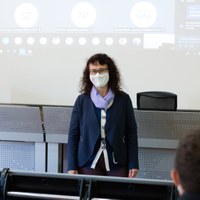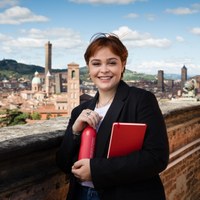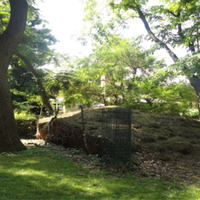The actions of the University of Bologna!

WASHABLE MASKS
In addition to the health repercussions, the pandemic has caused a disproportionate increase in the use of disposable products, particularly gloves and masks. To counteract this increase, the University of Bologna has decided to distribute certified washable masks (bearing the Alma Mater logo) free of charge to professors, researchers, technical-administrative staff, research fellows and PhD students: 47,200 in total from September 2020 to October 2021.

DEMATERIALISATION
For several years now, the University has been working on an important process of dematerialisation of administrative processes (e.g. teaching self-evaluation questionnaires, teaching contracts) and communication (e.g. University brochures), with a view to a digital first project. For example, the digitisation of the University brochures, previously distributed during Alma Orienta, has resulted in a paper saving of 13 tonnes per year. The ReMade project, which translates paper savings into the proportional planting of trees in green areas of the University, is also part of this approach.

WATER BOTTLE DISTRIBUTION
The Plastop project, created in 2018 with the aim of limiting the use of single-use plastic, involves several actions including the distribution of personal stainless steel water bottles. Since the start of the project to date, almost 22 thousand water bottles have been distributed to the student community and technical-administrative staff.

RESCUE ME
The recent Rescue me project aims to introduce virtuous actions in the management of construction site waste and the sharing of good practices or guidelines for the reuse, recycling and proper disposal of construction waste products. A further objective is to recover some building site materials for reuse in the creation of furnishing components for university buildings. In 2020, the first recovered furniture was placed in the new AUTC offices in Bologna, and the construction of a geodesic dome is currently underway with material recovered from the dismantling of an iron pylon.

COMPOSTING
For the maintenance of the lawn areas, the Athenaeum uses the mulching system, which shreds the grass and leaves it in place, allowing a reduction in fertilisation and an increase in the humus layer in the soil, as well as lower transport costs. The rest of the plant material (leaves and small branches) resulting from the maintenance of several green areas of the University is treated by composting on site or is transported to composting plants. The Athenaeum's efforts to recover clippings for compost can be hampered by the presence of plastic confetti in the soil, often used for graduation celebrations. For this reason it is important that everyone cooperates to avoid releasing contaminating materials into the environment.